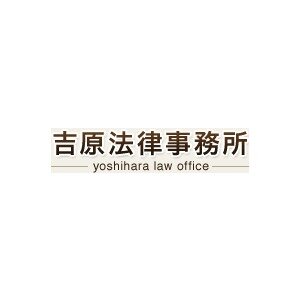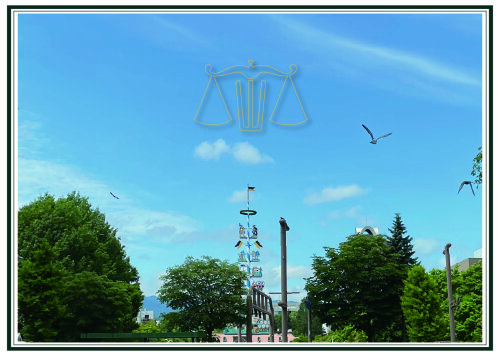Best Personal Injury Lawyers in Sapporo
Share your needs with us, get contacted by law firms.
Free. Takes 2 min.
List of the best lawyers in Sapporo, Japan
About Personal Injury Law in Sapporo, Japan
Personal injury law in Sapporo, Japan, falls under the broader category of tort law, which addresses issues where a person's actions or negligence cause injury or harm to another individual. In these cases, the injured party may seek compensation for damages such as medical expenses, lost wages, and pain and suffering. The Japanese legal system, which is a civil law system, provides pathways for victims to seek restitution through negotiation or litigation.
Why You May Need a Lawyer
Common situations where individuals require legal help in personal injury include, but are not limited to, traffic accidents, slips and falls, medical malpractice, workplace injuries, and product liability cases. A lawyer can help navigate the complexities of your case, negotiate with insurance companies, and represent you in court if necessary. The expertise of a lawyer can be invaluable, particularly in understanding how local laws apply to your situation, what your rights are, and the types of compensation you may be entitled to.
Local Laws Overview
Personal injury cases in Sapporo come under Japanese law and are subject to statutes of limitation, which dictate how long after an incident you can take legal action. The Civil Code of Japan lays out the fundamental principles of personal injury claims, where Article 709 establishes that anyone who intentionally or negligently infringes upon the rights of another, resulting in injury, is liable for the damages. Compensation typically covers both material and immaterial damages, but punitive damages are not a typical feature in Japanese law. Local laws in Sapporo follow the national guidelines, with the courts handling the interpretation and enforcement of these laws.
Frequently Asked Questions
How long do I have to file a personal injury claim in Sapporo?
The statute of limitations for personal injury cases in Japan is generally three years from the date when the injured party becomes aware of the damage and the identity of the person liable, or twenty years from the date of the tortious act. It's important to consult a lawyer as soon as possible to ensure you don't miss the deadline.
What kind of compensation can I receive for my injury?
You may be entitled to various types of compensation, including reimbursement for medical expenses, compensation for lost wages, and damages for pain and suffering (known as "consolation money" or "solatium"). Each case is subject to individual circumstances.
Do I need to go to court for a personal injury case in Sapporo?
Not necessarily. Many personal injury cases are resolved through negotiations with the responsible party or an insurance company. However, if an agreement cannot be reached, your lawyer may recommend taking the case to court.
Is there a minimum or maximum amount for compensation?
There is no legal minimum or maximum amount for compensation in personal injury cases in Japan. Each case is calculated based on individual circumstances such as the severity of the injury, impact on quality of life, and the victim's age and income level.
Can I file a personal injury claim if I'm at fault?
If you are partially at fault, you may still file a claim, but your compensation might be reduced in proportion to your share of the fault. This is referred to as comparative negligence.
How is fault determined in a personal injury case in Sapporo?
Fault is determined by evidence presented regarding negligence or intention that led to the injury. Proof of breach of duty and causation are crucial elements. A lawyer can help you gather and present evidence effectively.
What should I do immediately after an injury?
Seek medical attention, document your injuries, the accident scene, and collect contact information of any witnesses. It's also advisable to contact a personal injury lawyer to discuss your rights and possible next steps.
Can I claim for emotional distress?
Yes, compensation for emotional distress, referred to as moral damages, can be a component of your claim in Japan.
Will I need to pay legal fees upfront?
Payment arrangements vary among law firms. Some might work on a contingency basis, where they only receive payment if you win your case, while others may require upfront fees or retainers. Discuss this with your lawyer.
How do I find a qualified personal injury lawyer in Sapporo?
You can search through the Sapporo Bar Association, get referrals, or seek recommendations from friends and family who have had similar experiences.
Additional Resources
For additional help and information, you can reach out to the Sapporo Bar Association, which can provide referral services to local personal injury attorneys. The Japan Legal Support Center (Houterasu) can also offer legal advice and support. Additionally, there are various NPOs and consumer organizations that provide assistance and disseminate information related to personal injury matters.
Next Steps
If you require legal assistance for a personal injury matter in Sapporo, the first step is to gather all relevant documentation and evidence related to your case. Then, seek out a personal injury lawyer with experience in the area of your specific injury. Schedule a consultation, which is often free, to get an initial assessment of your case and understand the legal options available to you. Your lawyer will then guide you through the process of filing a claim and securing the compensation you deserve.
Lawzana helps you find the best lawyers and law firms in Sapporo through a curated and pre-screened list of qualified legal professionals. Our platform offers rankings and detailed profiles of attorneys and law firms, allowing you to compare based on practice areas, including Personal Injury, experience, and client feedback.
Each profile includes a description of the firm's areas of practice, client reviews, team members and partners, year of establishment, spoken languages, office locations, contact information, social media presence, and any published articles or resources. Most firms on our platform speak English and are experienced in both local and international legal matters.
Get a quote from top-rated law firms in Sapporo, Japan — quickly, securely, and without unnecessary hassle.
Disclaimer:
The information provided on this page is for general informational purposes only and does not constitute legal advice. While we strive to ensure the accuracy and relevance of the content, legal information may change over time, and interpretations of the law can vary. You should always consult with a qualified legal professional for advice specific to your situation.
We disclaim all liability for actions taken or not taken based on the content of this page. If you believe any information is incorrect or outdated, please contact us, and we will review and update it where appropriate.










